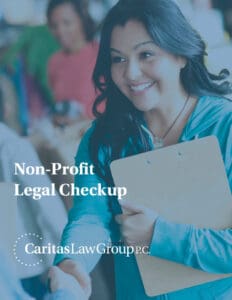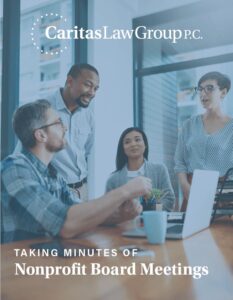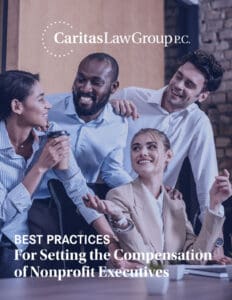OUR EXPERIENCE
We serve nonprofits of all types and sizes, offering creative legal advice grounded in over 20 years of specialized experience in nonprofit law.
In addition to serving a wide variety of nonprofit organizations, our clients also include donors making significant or complex gifts, businesses forming foundations for cause-marketing campaigns, and nonprofit founders considering the best philanthropic vehicle to meet their needs.

RESOURCES
Free Guides for your Nonprofit Organization
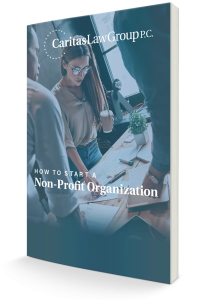
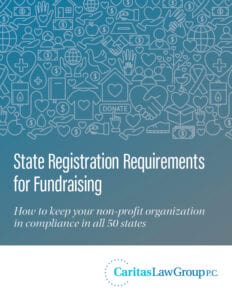
There are many legal issues specific to nonprofit organizations that can be easily prevented by taking certain steps early on in the life of the organization. For more established nonprofits, it’s a good idea to conduct a periodic review of your compliance documents, tax filings, and record keeping. We created this checklist to help you understand the items that a lawyer will assess when reviewing the overall legal health of your nonprofit organization.
Meeting minutes are a necessary form of record-keeping for all nonprofit organizations, regardless of size. These records can be used as legal evidence by the courts, IRS, and other regulators, so it’s important to ensure minutes are properly completed and stored. But where do you start?
Executives from tax-exempt organizations can only be paid “reasonable compensation” for their services.
To avoid excise taxes, nonprofits should strongly consider increasing the time and attention they devote to investigating, deliberating, documenting, and reporting executive compensation.
CharityLawyer Blog offers plain language explanations of complex nonprofit law concepts, discussions of current events and links to valuable resources for nonprofits.
"*" indicates required fields
FEATURED BLOG POSTS
- When a Fundraising Platform Fails: What the Flipcause Bankruptcy Should Teach Nonprofits
As a lawyer who works with charities and nonprofit boards, I spend much of my time talking about risk. Most leaders think about risk in terms of funding shortages, staff turnover, or regulatory audits. Few expect that the platform they use to collect donations could put their organization in financial jeopardy. That is why the
- The Voldemort Protocol Problem
Anonymity in philanthropy is not unusual. Many donors prefer privacy. Sometimes it is humility. Sometimes it is security. Sometimes it is simply temperament. But sometimes anonymity is not about the donor at all. When Anonymous Gifts Signal a Governance Failure The reporting surrounding MIT’s acceptance of funds from Jeffrey Epstein illustrates a different governance problem.
- The Pledge Is Not the Gift: What Foundation Boards Should Learn from Harvard and MIT
Foundation boards like to celebrate large pledges. They validate strategy. They signal momentum. They make annual reports look good. But the Jeffrey Epstein university scandals, documented by MIT’s own independent report and covered extensively by TIME, AP News, and others, demonstrate something boards often forget: The pledge itself can be the product. When the promise becomes leverage MIT publicly

